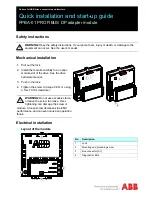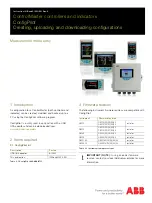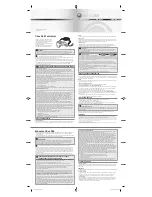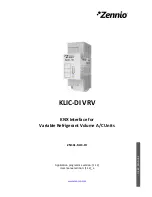
Your controller is equipped with the simple “push-in”
terminals for easy connection. Connect common wire
to the common terminal. Connect remaining wires to
corresponding terminal locations. Only connect one valve
to each terminal (station).
4. Connect Electrical Power
Indoor Locations
–Insert the power cord into an 110V
electrical outlet.
Outdoor Locations
–If a covered Ground Fault
Interrupter (GFI) outlet is available, insert the power cord
into the 110 volt outlet. If no outlet is available, the control-
ler must have the wiring permanently installed (
Figure 8
)
• Turn off the AC power at the AC circuit breaker and apply
an appropriate safety lockout. Verify that the power
has been turned off to the installation site using an AC
voltmeter set for the correct measurement range.
• Use power feed wire of 14 gauge (AWG) minimum with
a temperature rating of 140 degrees Fahrenheit (60
degrees Celsius).
• Install the conduit and associated fittings. Connect the AC
electrical power wiring to the source by following all the
right codes and local standards.
• Connect the junction box to the controller using a 1/2"
nipple (Junction box and nipple not included). [See
Figure
8
] Connect the source power conduit to the entrance of
the junction box, following all the appropriate codes.
• Take the cord (running from the controller to the junction
box) from the junction box and cut it to length. Remove
the outer insulation (from cord) to expose the three
wires.
• Connect the source wires to the wires extending from the
sprinkler controller.
• For USA: Take care to follow the correct color code. Con-
nect the Green for Ground, Black for Live, and White for
Neutral. Often the source ground may be bare copper
conductor rather than green wire.
• Make sure all connections are made with code-approved
insulated connectors.
• Be sure to place a weatherproof gasket and lid on the
junction box.
• Turn AC power on at the AC circuit breaker.
IMPORTANT: INSTALLATION USING PERMANANT WIRING
The sprinkler controller has a built-in transformer that
must be connected to an AC line voltage source. Check the
back of the sprinkler controller box for power requirements.
Local building and electrical codes usually require that an
approved electrical conduit and electrical fittings be used
to connect exterior wall-mounted equipment to AC power.
Please check local codes. Any permanent connection should
be made by a licensed electrical contractor in accordance
with the requirements of the National Electrical Code and
other state and local codes.
This sprinkler controller has two holes at the bottom for
wire access. Use a 1/2" Nipple to connect the sprinkler
controller to a standard electrical junction box. Both
connector and junction box must be UL Listed or equivalent
or comply with IEC or EN standards or equivalent.
The wire can be buried in the ground; however, for more
protection wires should be pulled through electrical conduit
and buried underground. Be careful to avoid burying the
wires in locations where they could be damaged by digging
or trenching in the future.
n
10
n


































